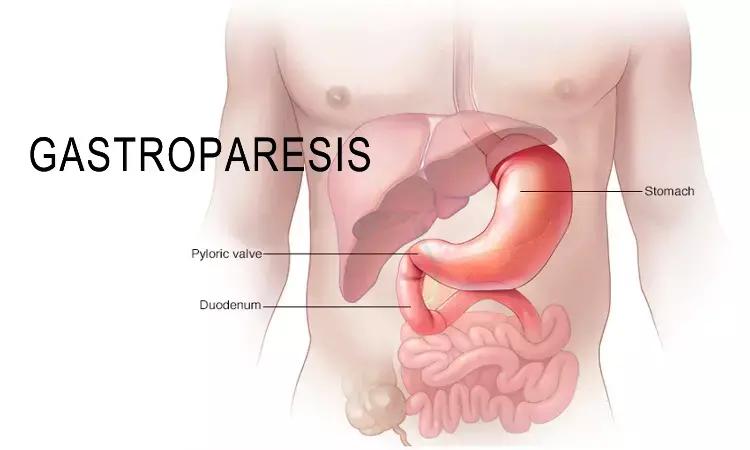Tradipitant Study in Gastroparesis
Neurokinin receptor 1 (NK1R) antagonists have shown efficacy in reducing nausea and vomiting in various conditions, including chemotherapy-induced emesis. However, their effectiveness in gastroparesis remained uncertain. A recent study explored the safety and efficacy of tradipitant, a neurokinin receptor 1 (NK1R) antagonist, in patients with idiopathic and diabetic gastroparesis. Gastroparesis is a condition characterized by delayed gastric emptying, leading to symptoms such as nausea and vomiting. Tradipitant, known for its effectiveness in chemotherapy-induced emesis, was investigated for its potential in treating gastroparesis-related symptoms.
This study was published in the journal Clinical Gastroenterology and Hepatology: The Official Clinical Practice Journal of the American Gastroenterological Association by Jesse L Carlin and colleagues. This study aimed to evaluate the safety and efficacy of tradipitant in alleviating symptoms of nausea in patients with gastroparesis.
Study Design
The study included 201 adults with gastroparesis who were randomly assigned to receive either oral tradipitant 85 mg or placebo twice daily for 12 weeks. Symptoms were assessed using:
- Daily symptom diaries
- Gastroparesis Cardinal Symptom Index scores
- Other patient-reported questionnaires
Blood levels were monitored for an exposure-response analysis. The primary outcome measure was the change from baseline to week 12 in average nausea severity, as measured by the daily symptom diary.
Results
Primary Outcome
The intention-to-treat (ITT) population did not show a significant difference in nausea severity change between the tradipitant and placebo groups at week 12 (P = .741).
Exposure-Response Analysis
Post hoc analyses, considering factors such as drug exposure, rescue medications, and baseline severity inflation, revealed significant improvements in average nausea severity in subjects with high blood levels of tradipitant starting from weeks 2 through 4.
Sensitivity Analyses
When accounting for confounding factors, tradipitant treatment demonstrated strengthened effects, with statistically significant improvements in nausea observed at week 12.
While tradipitant did not achieve significance in the ITT population, the study's exposure-response analysis indicated significant effects with adequate tradipitant exposure. Post hoc sensitivity analyses further supported the potential of tradipitant as a treatment for nausea in gastroparesis patients. These findings highlight the need for further research to explore tradipitant's efficacy in managing gastroparesis symptoms.
Reference
Carlin, J. L., Polymeropoulos, C., Camilleri, M., Lembo, A., Fisher, M., Kupersmith, C., Madonick, D., Moszczynski, P., Smieszek, S., Xiao, C., Birznieks, G., & Polymeropoulos, M. H. The efficacy of tradipitant in patients with diabetic and idiopathic gastroparesis in phase III randomized placebo-controlled clinical trial. Clinical Gastroenterology and Hepatology: The Official Clinical Practice Journal of the American Gastroenterological Association, 2024. https://doi.org/10.1016/j.cgh.2024.01.005



0 Comments
Post a comment
No comments yet. Be the first to comment!